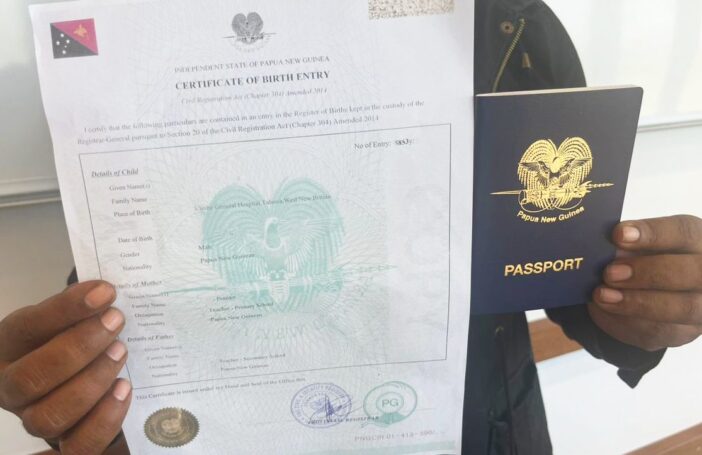As anyone familiar with the PNG academic scene can testify, some departments have a lot of difficulty holding on to their staff. The Economics Department at the University of Papua New Guinea (UPNG) is a good example. It is the only economics department in the whole country. But over the last few years, and despite the efforts made by the university, the number of full-time lecturers has ranged between zero and two. Several have departed over the years for a range of positions in government departments and authorities.
To understand better the underlying problem, we conducted an analysis of academic pay in PNG, comparing how much universities pay their staff with how much the public service, statutory authorities and state-owned enterprises (SOEs) do. We used the University of PNG to obtain academic salary data, and obtained data on public service pay as well as on pay scales from one statutory authority and state-owned enterprise. We used data on both base salary and allowances, and, in the case of UPNG, also used imputed rent to capture the value of subsidized housing provided to most staff.
There are various ways to compare the data. You can read our full paper here, and a sample of our analysis, as well as our main conclusions, below.
The figure below compares salaries for positions deemed by us to be comparable across the four types of agencies. A few clear points emerge. Universities simply can’t compete against state-owned enterprises, where salaries can be twice as high as academic ones for comparable positions. The statutory authority we had data for doesn’t pay as much as the SOE, but their salaries are still higher than academic ones for most positions. University salaries are competitive against public service ones except at the highest levels.
Salaries for comparable positions across UPNG, the public service, and a state-owned enterprise and statutory authority
 Note: We lack data for CEO and Secretary positions, and so lack comparable data for professorial salaries (UPNG-6).
Note: We lack data for CEO and Secretary positions, and so lack comparable data for professorial salaries (UPNG-6).
Given this, it isn’t surprising that academic staff leave either for senior government jobs, or earlier for more a more junior job with a state-owned enterprise or statutory authority. What then should the government and universities do?
From an international perspective, academics in PNG are not underpaid. We can compare our data with that collected by a multi-country study of academic salaries (see our paper for the source). PNG comes in the middle of the range for salaries, and has, by some distance, the highest ratio of academic salaries to GDP per capita.
 Given this, there doesn’t seem to be much of a case for a general increase in academic salaries in PNG. Rather, any increase should be targeted to where there is competition.
Given this, there doesn’t seem to be much of a case for a general increase in academic salaries in PNG. Rather, any increase should be targeted to where there is competition.
What else can the government and universities do to attract and retain more academics? We end with three suggestions.
First, staff are already permitted to undertake consultancies, and this policy should remain in place. However, too much reliance on consultancy income will undermine teaching and research performance.
Second, allowances are very important for university remuneration: much more important than for any other public sector institution. Where universities are able to provide housing, they should take measures to improve their housing stock, in terms of both quantity and quality.
Third and finally, it will be difficult, and perhaps impossible and indeed undesirable, fully to close the gap between academic and all outside salaries. Other measures, such as improving the job satisfaction of academics by improving the work environment, and increasing the supply of quality candidates to fill academic positions will also be critical for ensuring the future of disciplines such as economics in Papua New Guinea.
Thomas Wangi lectures in economics at the University of Papua New Guinea, and Stephen Howes is the Director of the ANU Development Policy Centre. This paper was presented at the 2014 PNG Update. The paper was written while Thomas Wangi was visiting the ANU earlier in the year as a Greg Taylor Scholar.






For the latest on the decaying institution which is UPNG, try the official website or rather the message to what was once the official website accessed today.:
This account has been Suspended or Closed
Please contact your web hosting provider for more information.
As pointed out in my earlier comment, the newly appointed VC once promised that fixing the website would be his first priority. Certainly it has been fixed though this may not have been what he meant, or do anything to assist enquiries to the university or internal communications. While having wifi may be an improvement for some individuals, I doubt that it has done much to improve the `push factors’ behind academic turnover which Bernard Yegiora identified two days ago.
Defending the indefensible or tinkering with minor aspects of reform are no longer appropriate: UPNG needs a major comprehensive transformation by an international consortium, as drives so much at USP, if it is to adequately serve the country and the region, as well as wider labour markets.
Conditions like availability of up to date reading materials and the internet are push factors. When I was working with UPNG in the politics strand the difficulty in having access to information was an impediment to my teaching experience.
From my analysis, academia in PNG is a launching pad. An individual begins teach for various reasons, once they gain much need experience they test themselves in the market, that is probably why there is a high turn over rate in academic jobs. Also academia as a career is not really appealing. Maybe the general perception is; why should I waste my time teaching these bunch of students when I can make more money out there doing less work.
I agree, teaching of politics is worst. When the likes of Sepoe, Gelu, Okole and Anere left the politics strand they left a big vacuum which is evident today. Most young graduates visualize working as a practitioner rather then an academic. They see academia as ‘all work and no fun’. The challenge for Politics unlike Economics is to create a career pathway. Both UPNG and DWU needs to encourage more graduates to pursue a career in academia regardless of the dual pay system. The institutions also need to make the academic scene more challenging and attractive with more career enriching activities.
Scott,
Well, that provoked your fury. But your criticism is mainly of our (imputed) motives. You make only two criticisms of substance. One is that we ignore loadings for expats. Correct. We are interested in why Papua New Guineans move from the university to other jobs. The other is that we use PPPs to compare salaries across countries. How else should make such comparisons? There is no other way, which is precisely why PPPs are always used for such comparisons and more broadly for standard-of-living comparisons across countries. And there is nothing casual about our empirical methods. No-one else has undertaken this analysis before, at least not in public. I think we made a pretty good first effort. If there are flaws, your commentary doesn’t reveal them.
Of course, salaries are not the only thing that matters. Other reforms are also needed. I agree that UPNG should fix up its website. But it does now have wireless. I used it quite satisfactorily during the PNG Update in June.
Your most useful point is that allowances paid to some academics may make others unhappy. It is hard, given the international comparisons, to make the case for an across-the-board increase. But I accept that this might be a second best.
Regards,
Stephen
In their plea for so-called pay increases where there is competition, Messrs Wangi and Howes do not note that UPNG has had employment differentials between staff, including wages and salaries, for many years. Under various names there have been loadings particularly for expatriate staff,. These amounts in excess of the wages and salaries paid to indigenous staff are usually justified on the grounds that the international demand (ie competition) for more highly trained academics makes it necessary to offer internationally comparable rates of remuneration. No other employment policy has caused more dissatisfaction and dissension at UPNG and many other universities. To add another layer of differentiation as advocated by the writers would make UPNG an even less satisfactory workplace than it already is.
To urge that this be explicitly done in one or even some areas of the university, such as economics which is the clear academic preference (bias?) of Messrs Wangi and Howes, merely shows what people trained outside their discipline have known for years. The market is a social, political-ideological construct. Why economics over politics? Does PNG not need better trained politicians and public servants, as well as people working for NGOs? Lawyers? Health workers and teachers? Mathematicians? Statisticians? Is there any evidence that these academic disciplines at what is still primarily a teaching university have lesser need for highly trained, dedicated teachers? Any evidence that the competition for staff in these areas is any less than for economists when the over-all standard of teaching staff across the whole university desperately needs improvement?
As one who has written at length about the parlous state of UPNG, I have previously provided ample evidence that shows teaching of politics at UPNG is in a similar if not worse state than Messrs and Howe suggest for economics. However among the many proposals for change I have advocated, preferential wage and salary arrangements for politics staff have not been among them. That all staff in these and other disciplines, no matter how dedicated, are unable to raise their standards of teaching to an international level when there is effectively no internet, no library, little maintenance of teaching spaces or student accommodation, every incentive to avoid teaching through consultancies, and serious deficiencies of managerial leadership. (Does anyone recall the promise made at the ANU by the recently appointed current VC that his first task would be to bring the UPNG website up to date? Check it out-last updated in March 2007. Then for those interested in simplistic comparisons compare with USP’s website.)
Finally, a methodological criticism of the casual empiricism which Messrs Wangi and Howes use to construct a sole indicator for wage comparability across countries. The PPP (purchasing power parity) device should never be used in this manner. There are more reasons than can be given here why it should ALWAYS be used with other measures. Among them are currency fluctuations, absence of temporal changes in relative wages and the comparative merit of items included and not included in the measures, as well as locational considerations. Anyone who ever uses data employing the PPP should at least show some humility about the usefulness of the data provided.